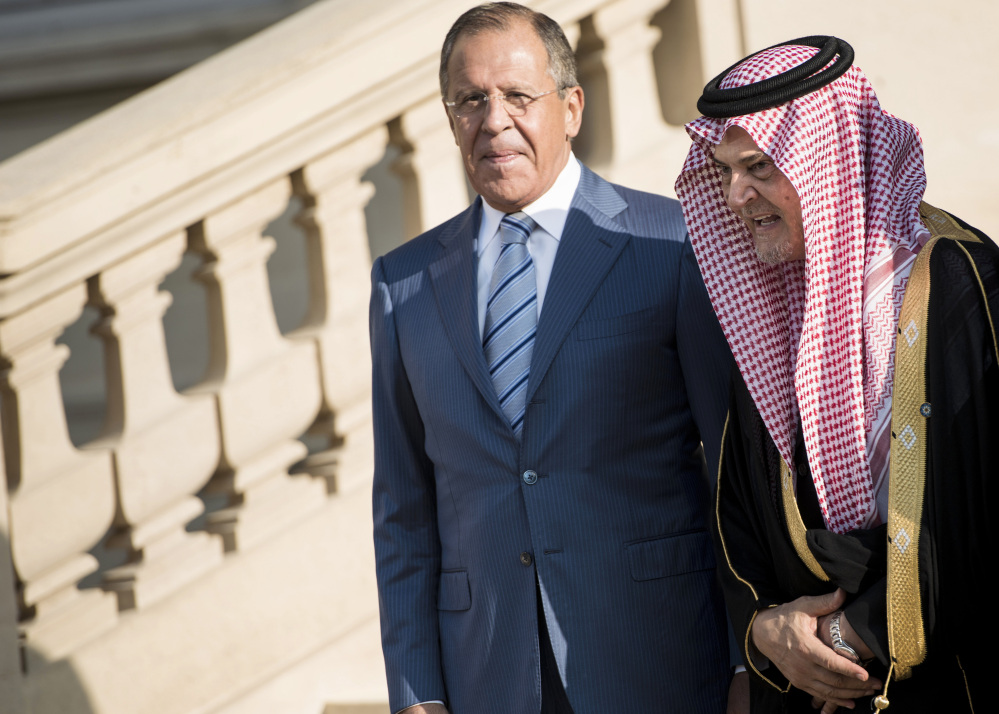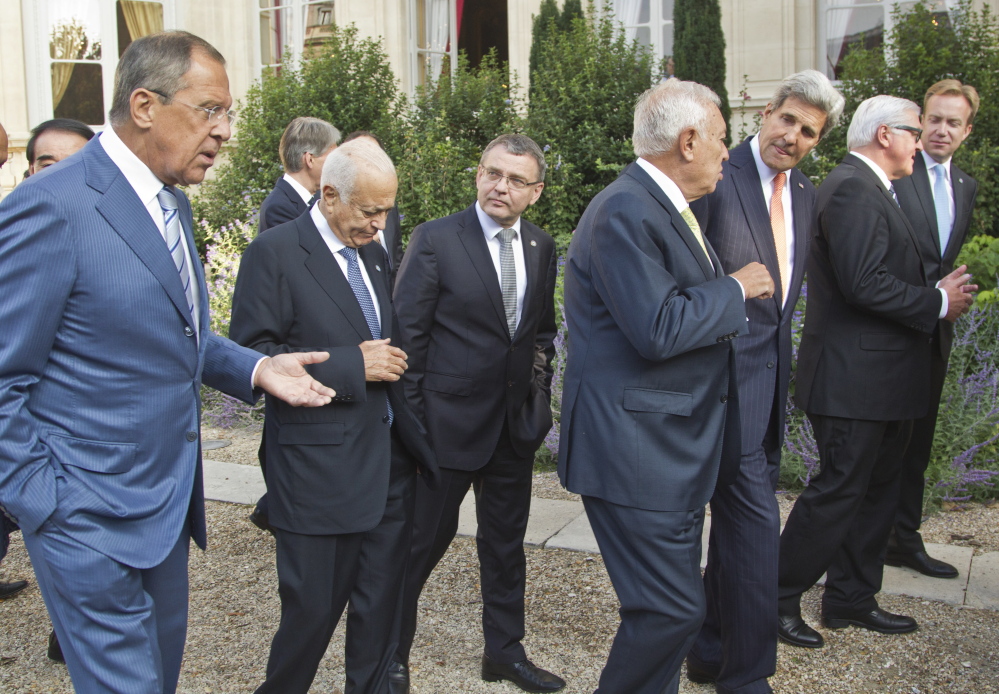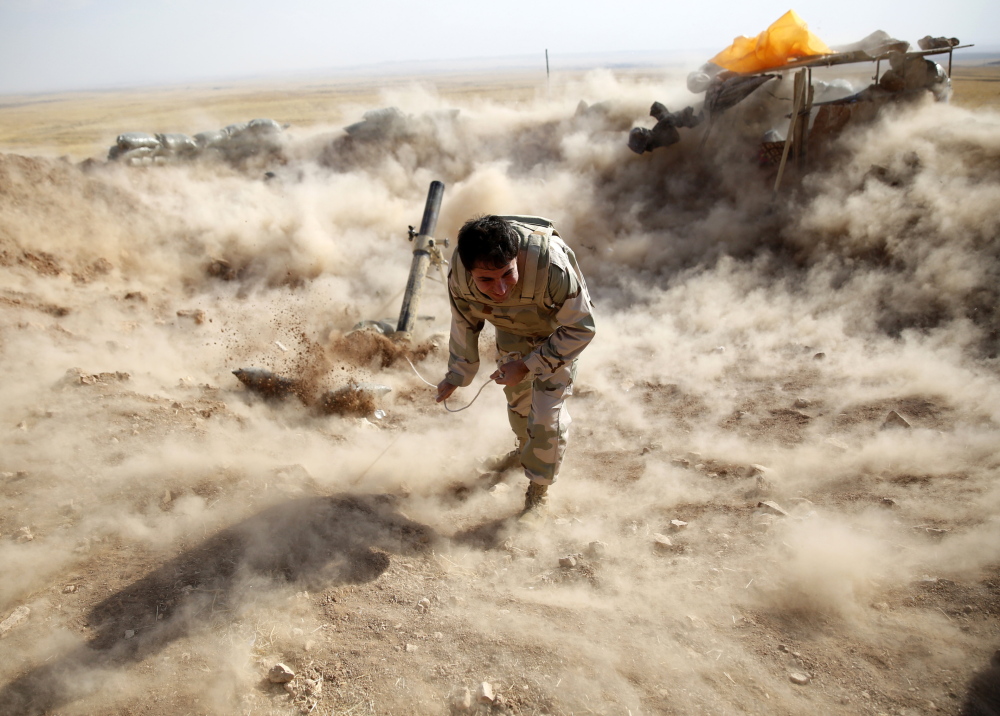WASHINGTON — President Obama’s plan to train and equip Syrian rebels in the fight against Islamic State militants appeared headed for quick passage on Capitol Hill this week, but congressional leaders have signaled that they will postpone a full debate on the use of military force until after the midterm elections.
House Speaker John Boehner, R-Ohio, and Senate Minority Leader Mitch McConnell, R-Ky., have been working on a cross-chamber strategy aimed to keep their party united and move swiftly toward passage.
The House is expected to grant Obama the short-term authority as part of an amendment to a larger measure funding federal agencies that is expected to pass after debate Tuesday and Wednesday, GOP leadership aides said. The Senate would take up the issue before adjourning for elections.
“People are trying to be careful about making a large commitment before we have all the facts, but eventually we need to have a new authorization that’s simple and sweeping and empowers the president to use all means necessary to destroy ISIL,” said Rep. Tom Cole, R-Okla., using an alternative acronym for the Islamic State. “Hopefully that can happen in the lame-duck session.”
Rep. Adam Kinzinger, R-Ill., said Monday that GOP colleagues who once opposed intervening in foreign conflicts seem to be in retreat. “It’s hard for them to argue to do nothing, and they know it,” he said.
On the international stage, Obama’s effort to build a broad coalition against the militants seemed to pick up momentum in Paris. World powers meeting in the French capital agreed to use “any means necessary” to combat the militant force surging in Iraq and Syria, and diplomats from 26 nations and several international organizations began dividing responsibilities for what Secretary of State John Kerry said will be an expanded international military, diplomatic and law enforcement assault.
There was one setback in the coalition-building efforts. Iran on Monday spurned an American request for cooperation in the fight against the Islamic State. U.S. officials, however, said the door remains open to an opportunity for Iran – to make common cause with the United States against its principal adversary in the Middle East.
In Congress, the Syria question was at the top of the agenda, and leading members of both parties signaled a willingness to grant Obama’s request for explicit authority to allow U.S. military personnel to train rebels and outfit them with arms, at least in the short term.
Some disgruntled members of the president’s party, however, were insisting on a full war debate before the elections.
“I can’t see a reason to not do so, other than political timidity,” said Rep. Adam Schiff, D-Calif., a senior member of the House Intelligence Committee.
Boehner’s decision to quickly introduce legislation underscores his hawkish view and the progress he has made to mollify his unruly conference.
Under plans unveiled by House Republicans on Monday night, Congress would grant short-term authorization for the Pentagon to begin operations against the Islamic State group. The Pentagon would have to submit planning reports to lawmakers with details on how military officials are recruiting and vetting rebel forces.
As the international efforts gathered steam Monday, Iran played spoiler. Its supreme leader, Ayatollah Ali Khamenei, tweeted his disdain for the effort and revealed a back-channel U.S. offer of unspecified cooperation against the militants. Khamenei said Iran rejected the request because of Washington’s “evil intentions,” the state-run Islamic Republic News Agency reported.
The United States did not deny the outreach to Iran and said discussions will continue.
But by going public with the U.S. offer Monday, Iran appeared to close off the possibility of cooperation for now.
Send questions/comments to the editors.





Success. Please wait for the page to reload. If the page does not reload within 5 seconds, please refresh the page.
Enter your email and password to access comments.
Hi, to comment on stories you must . This profile is in addition to your subscription and website login.
Already have a commenting profile? .
Invalid username/password.
Please check your email to confirm and complete your registration.
Only subscribers are eligible to post comments. Please subscribe or login first for digital access. Here’s why.
Use the form below to reset your password. When you've submitted your account email, we will send an email with a reset code.